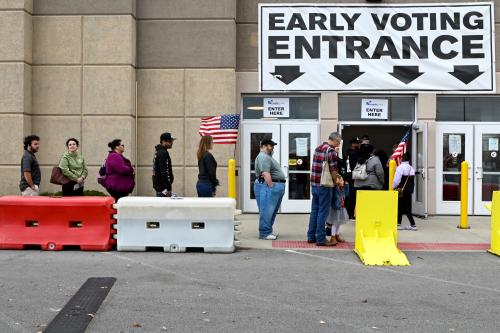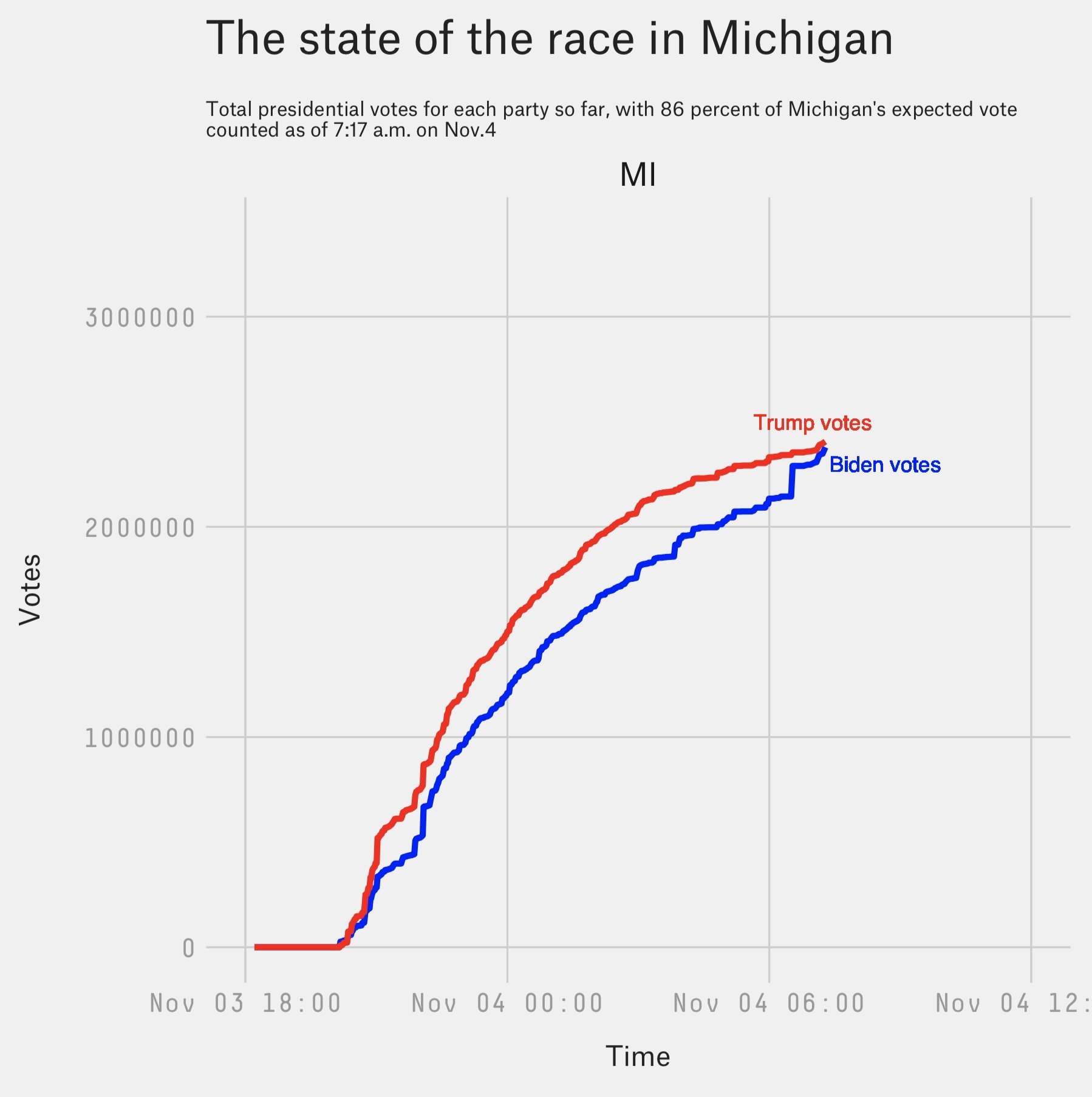[You are in India. This is the USA.
Many States decided to pass bills which only allow the start of counting of the votes after the polls close.
It is not incompetence, it is not irresponsibility. It is the way it has been for some time.
There are also all the absentee votes which are coming from Americans and Military who live abroad.
If your intention is to put doubt in people's mind, especially Republicans, forget it. ]
The chances of knowing which party will control the U.S. Senate on election night 2022 is increasingly small, and the chances of knowing who won every single U.S. House and statewide race is zero. As Americans we should not consider that evidence of fraud, instead, we should understand it to be evidence of a careful, successfully administered, functional election. And as citizens, we have an obligation to push back against those who falsely and recklessly paint that scenario as something uncommon, unforeseen, and sinister.
In 2020, election night became “election week” as the counting of absentee ballots across a bevy of close states delayed most networks declaring who won the presidency and certain close House and Senate races. Since 2020, misinformation, disinformation, election-related conspiracy theories, and
election denialism has thrived, and they will be a vocal minority once again after the election.
According to
the National Conference of State Legislatures, there are numerous ways in which states are required to process and/or count early and absentee ballots. Some states can process these ballots prior to Election Day, while others cannot even begin processing those ballots until Election Day. The counting of early and absentee ballots varies, too. Some states can begin counting prior to Election Day (although results are not made public). Other states can begin counting prior to polls closing on Election Day, but not prior to that date. Still others cannot begin counting votes until after polls close on Election Day.
As the table below shows, the intersection of the timing of processing and counting of early and absentee votes varies dramatically. In some states, early and absentee ballots cannot be processed until Election Day and cannot be counted until after the polls close on election night.
THE TIMING AND PROCESSING OF MAIL/ABSENTEE BALLOTS (2022)
*Source: [ii] National Conference of State Legislatures (NCSL) *Connecticut allows processing to begin at the discretion of the local registrar of voters. *Ohio allows processing to begin before counting at a time determined by the board of elections. *Maryland does not permit the processing of absentee/mail ballots until 10 a.m. on Thursday after an election, based on state regulation.Prior to the 2020 election, few people voted early or absentee. However, because of COVID-19,
many state legislatures, governors, and other election officials implemented measuresto make voting early or by absentee much easier, in an effort to make voting safer for one’s personal health. This swelled the number of voters using early and absentee methods, to historic levels.
According to the New York Times, more than 101 million Americans voted in this way in 2020.
Between 2020 and 2022 many states kept in place numerous changes to their voting procedures, making early and absentee voting much easier. While fewer people will take advantage of these procedures both because fewer votes will be cast in the 2022 midterms, relative to the 2020 presidential, and the share of in-person Election Day voters is expected to be higher this year than two years ago, early and absentee voters are expected to be dramatically higher than in 2018 and all previous elections. This reality puts significant pressure on state, county, and local election administrators to count millions of votes as quickly as possible. It also means in close races the true outcome may not be known for days. This is made more difficult in the many states in which mail-in absentee votes can still be accepted for days or even weeks after Election Day, so long as the ballot is postmarked on or before November 8. (A policy that applies to civilian and especially military ballots.)
Of the 11 states with competitive U.S. Senate and/or governors races, seven can begin processing early and absentee ballots early.
Why we won’t know much on election night Four—Michigan, New Hampshire, Pennsylvania, and Wisconsin—can only begin processing and counting ballots on Election Day. New Hampshire cannot even begin counting them until the polls close that night. Three other states—Georgia, North Carolina, and Texas—cannot count their pre-processed ballots until Election Day. It is no coincidence that many of these states were ground zero for 2020 election lawsuits, conspiracy theories and denialism, as Democratic-heavy early and absentee ballots were counted more slowly than in-person Election Day votes.
(full article online)
The chances of knowing which party will control the U.S. Senate on election night 2022 is increasingly small

www.brookings.edu





